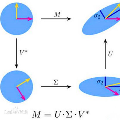We propose a parallel constructive interference (CI)-based symbol-level precoding (SLP) approach for massive connectivity in the downlink of multiuser multiple-input single-output (MU-MISO) systems, with only local channel state information (CSI) used at each processor unit and limited information exchange between processor units. By reformulating the power minimization (PM) SLP problem and exploiting the separability of the corresponding reformulation, the original problem is decomposed into several parallel subproblems via the ADMM framework with closed-form solutions, leading to a substantial reduction in computational complexity. The sufficient condition for guaranteeing the convergence of the proposed approach is derived, based on which an adaptive parameter tuning strategy is proposed to accelerate the convergence rate. To avoid the large-dimension matrix inverse operation, an efficient algorithm is proposed by employing the standard proximal term and by leveraging the singular value decomposition (SVD). Furthermore, a prox-linear proximal term is adopted to fully eliminate the matrix inversion, and a parallel inverse-free SLP (PIF-SLP) algorithm is finally obtained. Numerical results validate our derivations above, and demonstrate that the proposed PIF-SLP algorithm can significantly reduce the computational complexity compared to the state-of-the-arts.
翻译:我们建议对多用户多份投入单产出(MU-MISO)系统下链接的大规模连接采取平行的建设性干预(CI)符号级预编码(SLP)法,每个处理单位只使用本地频道状态信息(CSI),处理单位之间的信息交流有限。通过重塑电源最小化(PM) SLP问题和利用相应重整的分离性,最初的问题通过ADMM框架的封闭式解决方案分解成若干平行的子问题,导致计算复杂性的大幅降低。提出了保证拟议方法趋同的充分条件,在此基础上提出了加快趋同率的适应参数调整战略。为了避免大型组合矩阵反向运行,通过使用标准的准值术语和利用单值分解法(SVD),提出了高效的算法。此外,采用了准线性准准术语,以完全消除矩阵的反向,并同时提出一个平行的SLP(PIF-SLP),以加速速度调整战略,以加快合并速度,从而最终将我们提议的比较的NSLP-SLP) 升级结果降低。




